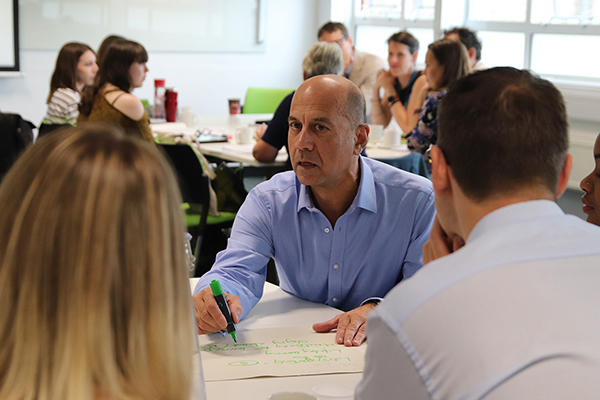Teaching experts from around the world came together at the University of Worcester in association with British Educational Research Association (BERA) to identify ways to move education forward on a global scale.

The Global Perspectives in Education conference, organised by the University's Institute of Education, attracted academics and teaching experts from Bath, Switzerland, The Netherlands, Sweden, Kenya, India and the United States of America. They spoke on a range of topics, exploring innovative ways of and approaches to teaching and the challenges faced in supporting sustainable high quality education across the world.
Dr Pinky Jain International Development Lead within the University's Institute of Education, said: "Here at the University of Worcester we really value the opportunities that looking at education in a diverse way can enhance local practice. This conference brings together students, teachers and researchers and gives them space to explore challenges facing such an important area of work "getting the best outcome for all our children."
The conference had a wide range of presentations considering the integration of technology within Indian teaching, inclusive education in African schools, a comparison of early maths education in Switzerland, Germany and Taiwan, opportunities for developing skills of teachers in Ethiopia, and how to assess the abilities of newly immigrated pupils.
Representatives from the Han University of Applied Science, in The Netherlands, spoke about a traffic light-style flag system developed to allow teachers to identify what is acceptable and unacceptable sexual behaviour in their pupils and how to act accordingly.
Keynote speaker Mikael Arevius, from Gapminder, an independent Swedish foundation that fights misconceptions about global development and produces free teaching resources, spoke on the importance of people knowing the facts about global development to get a sense of perspective.
He introduced the idea of "factfulness" of "watching your own thinking and your own conclusions and knowing that you need facts in most cases to say something about the world or about society". He added: "We have for thousands of years been able to understand our world because it was a direct world and we could understand it based on our own experiences, so understanding your local context was good enough. But today in a global world your own experience from your own context is not good enough. We have to work really hard with our thinking in order to understand the world."
Emphasising the need for "factfulness", he pointed out that there were 65m refugees in the world, which is less than 1 per cent of the global population, and that eight out of 10 girls and nine out of 10 boys go to school.
"I'm not saying that it isn't a problem," he added. "But we should have the proportions and it's hard to see the proportions sometimes when talking about global issues. When we talk about girls or children out of school there will be big numbers. We should also look at the trend to see is it better, worse or the same."
The two-day conference ended with a discussion to develop an action plan to support teacher educational development and identify projects that could be worked on beyond the conference on a wider scale.
The conference will be convened again next year in order to evaluate the projects and continue the crucial dialog needed on education between practitioners on a global stage.
There are a limited number of places available to start in September 2018 for well-qualified applicants.
For more information visit www.worcester.ac.uk or call 01905 855111.